PEN World Voices Festival
April 28–May 4
Mark your calendars for the 2008 PEN World Voices Festival, featuring more than 100 writers for six days of literary discussion and exchange. Full program details will be available on PEN.org on March 20.
PEN World Voices Festival
April 28–May 4
Mark your calendars for the 2008 PEN World Voices Festival, featuring more than 100 writers for six days of literary discussion and exchange. Full program details will be available on PEN.org on March 20.
 The Kerouac Project of Orlanda is now accepting applications for the September-November 2008, December-February 2008, March-May 2009, and June-August 2009 residencies. The application period will be from January 2008 through April 2008. We will read the applications in May and announce the winners in June. The intent is to have four residencies annually: September-November, December-February, March-May, June-August.
The Kerouac Project of Orlanda is now accepting applications for the September-November 2008, December-February 2008, March-May 2009, and June-August 2009 residencies. The application period will be from January 2008 through April 2008. We will read the applications in May and announce the winners in June. The intent is to have four residencies annually: September-November, December-February, March-May, June-August.
 Office Manager Plunders ‘Oxford American’ Magazine
Office Manager Plunders ‘Oxford American’ Magazine
By Edward Nawotka
Publishers Weekly
2/27/2008
The saga of the Oxford American magazine, which has twice ceased publication after financial setbacks, added yet another episode when earlier this month the magazine’s office manager was arrested after being accused of embezzling $30,000. The woman, Renae Maxwell, may face as much as 30 years in prison; she has been released on $15,000 bail and awaits trial.
“We’ve now found out she may have taken as much as $70,000,” said founder and editor Marc Smirnoff. “She’s left us with just $3,000 in the bank.”
He doesn’t believe restitution is an option. “I just don’t expect Renae has any of the money left: she bought cars, got a tattoo, spent it on a ‘sweet sixteen’ party for her daughter at the best hotel in town. Who knows, she might have even used the money she stole from us to pay for bail,” he said.
Originally established in 1992 in Oxford, Miss. with the assistance of John Grisham, Oxford became a widely respected showcase for Southern writing and went on to win numerous National Magazine Awards. When Grisham ended his support it closed for a year, was bought by At Home Media Group, based in Little Rock, Ark., and revived, but was shuttered again one year later. In 2004 the magazine was again re-launched, this time as a non-profit affiliated with the University of Central Arkansas, which put up the money to keep it going. The magazine has about 19,000 paid subscribers and a print run of 35,000 copies.
The new twist has made the resilient Smirnoff even more determined and, surprisingly, optimistic. “I’m confident that this year we’ll get an infusion of cash. I don’t know why, I just am,” he said. “Soon, I know we’ll be able to pay back the money the university loaned us and begin paying our writers better.” Publisher Ray Wittenberg concurred. “This has been a set-back, but not one that we can’t overcome,” he said.
Smirnoff said that despite the lack of ready cash, the quarterly magazine will ship its April issue on time. Other forthcoming editions will cover Southern film and the magazine’s popular music issue. In the fall, the University of Arkansas Press will publish The Oxford American Book of Great Music Writing, the second anthology to emerge from the magazine.
Beall Poetry Festival
April 3-5, 2008
Baylor University, Waco, TX
A three-day celebration of some of America’s finest contemporary poets, with readings, a panel discussion, and the Virginia Beall Ball Lecture on Contemporary Poetry. Participants include Gary Snyder, Langdon Hammer, Li-Young Lee, Jean Valentine.
Baylor University’s 14th annual Beall Poetry Festival is supported by the John A. and DeLouise McClelland Beall Endowed Fund, established in 1994 by Mrs. Virginia B. Ball of Muncie, Ind., to honor her parents and to encourage the writing and appreciation of poetry. For more information, write to the Baylor University Department of English at One Bear Place #97404, Waco, TX 76798-7404 or call (254) 710-1768.
All events are free and open to the public.
Women on the Margins
The ‘beloved’ and the ‘mistress’ in Renaissance Florence
By Dr. Catherine Lawless
Three Monkeys
January 2008
“This article will discuss women who found themselves in irregular relationships in late medieval and Renaissance Florence. It will look both at women who were idealised as love objects and women who were in fact involved in pre- or extra- marital sexual relationships. Numerous histories of women have been written in the last thirty years or more. Social history has examined the roles of women in the family, the convent, in urban trades and as peasants. Woman as wife, mother, homemaker has been studied with regard to the formation of early modern ideology of the state, where the home or family can be seen as a microcosm of the state. Historians of art and literature have shown how images were gendered and also how male artists/writers mediated female forms or types…”
Read the rest on Three Monkeys online
We just got back from one of those refreshing getaways that help us to survive long Michigan winters and living in a small town. The event was “Writing in Public: A Celebration of Karl Pohrt,” sponsored by the University of Michigan and the support of the good people of Ann Arbor. Karl Pohrt is the founder and owner, for the past 27 years, of Shaman Drum Bookshop in downtown, a-block-from-the-university Ann Arbor. He is one of a dwindling breed of independent bookstore owners and book lovers who works tirelessly and with a continued passion to bring both new and well-known authors and important and sometimes difficult issues to his community.
There to celebrate Pohrt were guest authors Andrea Barrett and Gary Snyder, both of whom read on Thursday evening. On Friday, there were three panels: Literary Publishing, Writing in the Schools, and From Page to Screen. We were able to attend Literary Publishing with Sven Birkerts, Editor of Agni, Michale Wiegers, Executive Editor of Copper Canyon, and Rebecca Wolff, Editor and Publisher of Fence Magazine and Fence Books.
Each of these three speakers provided great insight into their particular niche of publishing. (I hope Michael will hold good on his word and provide us with a copy of his remarks to be published on the site soon.) Birkerts, being the college professor that he is, is the kind of speaker from whom I wish I could take a class, just to hear him speak. He is interesting, thoughtful and honest, and whether from reading his books or hearing him speak, always strikes a chord with me that resonates in my thinking for days, and, in some cases, years.
 Birkerts talked about his daily grind as editor of Agni, of coming to work each day to find a mail bin filled with manila envelopes, most of which he knows will be returned to the sender. Each day, he enters and there’s a full bin, and when he leaves, it’s empty: “it’s the systole-diastole of literary respiration in the American culture,” he commented. And “rather than being cynical or jaded” about the repetitiveness of the work, he described it instead as renewing a feeling of “ongoingness” for him, to come in each day and see the bin refreshed with submissions.
Birkerts talked about his daily grind as editor of Agni, of coming to work each day to find a mail bin filled with manila envelopes, most of which he knows will be returned to the sender. Each day, he enters and there’s a full bin, and when he leaves, it’s empty: “it’s the systole-diastole of literary respiration in the American culture,” he commented. And “rather than being cynical or jaded” about the repetitiveness of the work, he described it instead as renewing a feeling of “ongoingness” for him, to come in each day and see the bin refreshed with submissions.
The process, he went on to detail, starts with his opening each envelope, beginning to read, and “waiting to be struck.” He’s not “looking to determine the ultimate value and worth” of the piece, but rather is “looking for traces of something we would want for the journal.” How often I have heard the woes of editors upon reading submissions: “Don’t they even read our journal before they submit?” Birkerts’s comments hit to the heart of this, assuring that “it may be a great story, but not what we are looking for.”
And what is Birkerts looking for? He commented that his role is not in personal reading but rather “public reading: in the capacity as a representative of the journal.” That he looks at the work in the larger context of “what’s going on in our culture. What our culture needs. What there’s too much of in our culture. What’s under threat in our culture.” Surely, a huge role for any one individual to take on, but at the same time, the very reason Agni has been and endures as a leading literary journal.
Knowing that the majority of the submissions will be sent back to the authors, Birkerts commented that he makes rejections very carefully: “I’m aware that every submission that goes back, goes back to a person that invested a lot of hope in this.” Indeed, a writer friend of mine who has been rejected a *few* times by Agni said he was actually okay with the rejection because he at least got a note with each one. He felt his efforts had been respected, and in turn, he respected the rejection. What a great comment on the sense of connection and community inherent in the submission and publishing process.
However, Agni, like so many publications now, is turning to e-submissions. After the panel, I questioned Birkerts on how this process was going to change what he had so endearingly referred to as his ‘morning meditation,’ and I, his ‘zen process’ of handling manuscripts. He offered his cautious concern, indicating he was still sorting his feelings on this one, that, like so many of us who hold to our books vs. ebooks, he will miss the tactile nature of the process. Ultimately, though, his reconciliation was that the origin and the destination of literary submission has not changed, only the process in the middle. That the writer is still creating and making art, and the publication to which it is submitted still involves a reader who is making meaning. It seems to touch upon a “deep grain of literary opposites” he contended, yet at the same time, e-submission is something he believes will help offer a “kind of leveling” for those making their submissions (specifically, he mentioned receiving submissions from India; that e-submissions may open that international door a bit wider).
Perhaps for the publisher, this is true, but for those like my writer friend, I’m not sure getting a form e-response rejection will be a welcome component of this methodology. Let’s just hope if there’s a space for “comments” on those e-submission rejections that will allow publishers to continue (or in some cases begin) to maintain the connection between writer and reader by offering a few words in respect of that investment of hope.
Without a doubt, there would likely be fewer of those rejections if only writers would familiarize themselves with the journals to which they send their works. Sending out blind submissions with greater ease (I know it happens because NewPages often gets literary submissions for our “magazine”- ?!) or using database services to mass-submit to magazines the writer has never even heard of , let alone read, have become the downside of e-submissions.
For editors like Birkerts, who are seasoned professionals in their work, handling the onslaught may not prove as great a challenge. If the first few lines don’t ring true, Birkerts moves on. In a final demonstration of his process, Birkerts opened the most recent issue of Agni (66) and read the opening lines from Harrison Solow’s essay, “Bendithion”:
“Vulcans have an inner eyelid.
“On one of the episodes of Star Trek, Mr. Spock is invaded by a fatal parasite on a remote planet. Exposure to high-intensity light appears to be the only cure—a treatment that would blind humans. Because of Vulcan physiology, however, a hidden ocular membrane descends to shut out intrusive rays, and Spock emerges intact, undamaged by his contact with an alien world.
“It turns out that y Cymry have an inner eyelid as well. More like an obfuscatory veil than a solid barricade, it allows the Welsh to see out, but effectively shades the inner self from the eyes of the inquisitive, casting all that is behind it in shadow. It is a dusky looking glass, presented innocently enough to the stranger, deceptively luminous and reflective, its transparency clearly controlled by time and measured, in nanobytes, by trust.”
And Margo Berdeshevsky’s story “Pas de Deux, à Trois”:
“Ok, blond. Ok, fifty. Ok, an emotional centipede, a poet, a vagabond. Ok, she drinks tea with milk, café au lait, when it doesn’t make her breasts ache. Ok, is homeless in spirit and has a house between a sleeping volcano and the wind-slapped sea and nowhere—now she has a pied à terre in Paris. Lucky bitch. Wait. Needless. Survivor. And suckles love like every other human. Meditative. Can sing in an alto-husk sort of way. Can climb hills. Can speak French very well, Russian very badly, can say good night in Indonesian, good morning in Tagalog. Can dance a tango barefoot, worries about her shape, waltzes clumsily. Likes: nakedness, Renoir, early Picasso, late Pinter, late Shakespeare, early W. S. Merwin, nature, beauty, sex, cognac, museums, cello, empty space, solid oak tables, old torqued trees with twisted fattened trunks and dwarf red birds fighting over high notes, the taste of rain, the taste of sperm, the smell of Eau Sauvage Cologne for men splashed on her own skin, Fragonard perfume, the smell of darkest red, the smell of praise, bundled wheat, mountains, the cry that might be love, kissing, white silk, walking-boots. There are wiser women. The tests of our faith are like that classic: spin flax into gold, empty thimblefuls of lakes into thirsty canyons.”
After both of which he commented, “These are stories I want to know more about.”
***
In addition to having selections from past issues accessible online, Agni has started a new online exclusive feature through which they hope to publish as much original content online per year as they do in the print journal. But, don’t worry, for now at least, Agni has no intention of going completely online. When that happens, Birkerts said he would need to “go find a small patch of woods in which to live, if there’s any left.”
Maybe not new to you, but new to us, here are online lit mags just added to our Online Literary Magazine Guide.
If you have any favorite online or print mags you don’t see on our lists – please drop me a line with a link: [email protected]
For information about these and many other quality literary magazines, click the links or visit The NewPages Guide to Literary Journals. Also visit the NewPages Literary Magazine Reviews for new reviews as well as an archive of past reviews.
Abraxas
46
2007
Irregular Print Schedule
Barrelhouse
Issue 5
2008
Biannual
Circumference
Poetry in Translation
Issue 6
Autumn 2007
Biannual
Cut Bank
68
Winter 2008
Biannual
The Dos Passos Review
Volume 4 Number 2
Fall 2007
Biannual
Fairy Tale Review
The Violet Issue
2007
Annual
Habitus
“Buenos Aires”
Number 3
Fall/Winter 2007
Biannual
Jubilat
14
2007
Biannual
Light: A Quarterly of Light Verse
Number 58
Autumn 2007
Lilies and Cannonballs Review
Volume 3 Number 2
2008
Biannual
Marginalia
Volume 3 Issue 2
Fall 2007
Annual
The New Quarterly
Number 105
Winter 2008
Northwest Review
Volume 46 Number 1
2008
Triannual
Monmouth University seeks a creative writer for a tenure track appointment at assistant or associate professor. We seek candidates who have an established record of publication including two highly regarded books; a record of excellent university teaching and a terminal degree (Ph.D. or M.F.A.). March 15, 2008.
University of Nebraska at Omaha. The Writer’s Workshop seeks a tenure-track Assistant Professor in Fiction with a secondary area of specialization in Screenwriting, Playwriting or other area. March 31, 2008.
Penn State Erie, The Behrend College. Lecturer in English/Creative Writing. March 17, 2008.
The MFA Program at the University of Missouri-St. Louis seeks a distinguished visiting fiction writer for the spring semester of 2009. Mary Troy, MFA Program Director. April 11, 2008.
Due to popular request (and a few obnoxious demands and one really pathetic whine),I have moved calls for submission off the blog and created a submissions page on the NewPages site: Calls for Submission.
I will update this reguarly and remove expired calls, and will post on the blog when I have updated this page.
If you have calls for submission you would like to see listed, drop me a line with a link: [email protected]
The Neighbors
by M.C. Allan
They are moving out today,
the couple down the hall,
who kept us up with their screaming.
She is a flirt; he a tyrant;
we know; we have overheard.
And when they forgave each other
they kept us awake
with their forgiveness: never
has the giving over of anger
been done so loudly, with such
banging of walls [. . .]
Read the rest on Delaware Poetry Review.
 Hotel Stories
Hotel Stories
by Mike Tyler
Published by The Art Cannot be Damaged
When Tyler was on tour with the Nuyorican Poets Café, he was locked out of his apartment by a girlfriend. He moved into a hotel – not just any hotel, The Carlton Arms Hotel, on East 25th in Manhattan, where all the rooms are decorated by artists from around the world. Tyler found a home there, becoming the poet-in-residence for eight years. These eleven “hotel stories” cover everything from the sharp edges of intimacy and the posing extremes of a high, to the complexities of friendship and the philosophy of everyday life, all prospering or wilting under the atmospheric protection of anonymity that a hotel provides.
Tyler is a celebrated artistic writer, but more akin to street artists like Banksy (who regularly sprays his words) and musicians like Beck (credited by Spin magazine as influenced by Tyler). His work includes appearances in magazines, anthologies, college-reading lists, as well as three books of his own, and is an acclaimed and influential performer (infamous for breaking an arm while doing a reading).
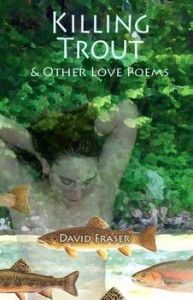 Yes, NewPages has taken a foray into the wild, woolly world of publishing. Our first book is a collection of poems by David Fraser. Dave grew up in Detroit with the likes of Andrei Codrescu and Ken Mikilowski among his poet friends, and myriad other 60s artists and musicians, all before they became great, fizzled out, or disappeared. Dave may have left Detroit, but Detroit never left Dave, and his writing is a blend of brick buildings, hot pavement, jazz and indie rock, and the deep woods, cool flowing rivers and tempestuous nature of “up north” Michigan. He’ll be reading at his local town library in April, so we’ll see if we can get some decent YouTube video. In the meantime, the book is available directly from NewPages: catch it here. A limited number of signed copies available while they last; make a note in your order form if you’d like one.
Yes, NewPages has taken a foray into the wild, woolly world of publishing. Our first book is a collection of poems by David Fraser. Dave grew up in Detroit with the likes of Andrei Codrescu and Ken Mikilowski among his poet friends, and myriad other 60s artists and musicians, all before they became great, fizzled out, or disappeared. Dave may have left Detroit, but Detroit never left Dave, and his writing is a blend of brick buildings, hot pavement, jazz and indie rock, and the deep woods, cool flowing rivers and tempestuous nature of “up north” Michigan. He’ll be reading at his local town library in April, so we’ll see if we can get some decent YouTube video. In the meantime, the book is available directly from NewPages: catch it here. A limited number of signed copies available while they last; make a note in your order form if you’d like one.
From Beltway Poetry Quarterly editor, Kim Roberts:
If you have not yet registered for Split This Rock: Poetry of Provocation and Witness, I urge you to do so! The festival kicks off with a press conference Thursday, March 20 and ends with a silent march and closing ceremony in front of the White House on Sunday, March 23. In between, we will celebrate poetry and activism with panel discussions, workshops, collaborative writing, walking tours, film, and readings.
There is only one week left to save on registration! Before March 10 registration is only $75 or $40 for students, which includes entry to all readings, workshops, panels, receptions, walking tours, and other activities. A day pass is available for $25, which includes readings, workshops, panels and other activities for one day. Some scholarships are available.
Beltway Poetry Quarterly is a co-sponsor (and is coordinating the guided walking tours). The festival will also include readings, workshops, panels, films and activism. Featured poets: Chris August, Jimmy Santiago Baca, Princess of Controversy, Robert Bly, Kenneth Carroll, Grace Cavalieri, Lucille Clifton, Joel Dias Porter (aka DJ Renegade), Mark Doty, Mart
Liberally Dispensing Death
by Ranjit Hoskote
nthposition
“Half a decade after the overthrow of the Taliban, young Afghans can still risk their lives by pressing the copy-paste buttons on their PCs. As you read this, a 23-year-old journalist sits in prison in the northern city of Mazhar-e-Sharif, sentenced to death by a religious council. His crime? He downloaded an article on Islam and its views on women from the internet, and distributed it among fellow students with a view to promoting discussion.” [Read the rest on ntnthposition]
The Florida Literary Arts Coalition is Florida’s voice for independent literary magazines, publishers, & writers. Founded in 2004 by Anhinga Press, Fiction Collective 2, and the University of Tampa Press, the Florida Literary Arts Coalition works to advance new writing and independent publishing throughout the state and region.
“Other Words” a FLAC’s annual conference of literary magazines, independent publishers, and writers. This year’s conference will take place November 6-8, 2008, at Flagler College, St. Augustine, Florida. Panel proposals relating to writing, publishing, and literary arts are being accepted now and should be sent to Jim Wilson at [email protected].
Paradigm
The Kepler Issue
The Kepler Issue, the first Paradigm of 2008, features all-new interviews with bestselling novelist Louis Bayard (Mr. Timothy and The Pale Blue Eye), singer-songwriter Liz Pappademas, renowned concept artist James Clyne (The Polar Express, Minority Report), and award-winning crop-circle designer John Lundberg. The Kepler Issue also boasts brand-new fiction, poetry, nonfiction, and screenplays that continue to prove that art is everywhere. Visit our new site at www.paradigmjournal.com.
You’re going to love this, all you homophonites out there. Circumference, a journal of poetry in translation out of Columbia University, has posted several untranslated lines of poetry on their web site and is calling for translations based only on their sound for their seventh homophonic feature. Here’s a taste:
Mbas ndarjes
fjal
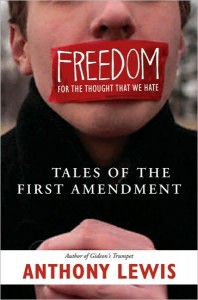 Fourteen Little Words
Fourteen Little Words
Anthony Lewis, Freedom for the Thought That We Hate: A Biography of the First Amendment
Reviewed by Victor Navasky
The Nation
February 21, 2008
When I was a first-year student at the Yale Law School in 1956, I was deeply impressed when my torts professor, Fleming James Jr., to underline his point that in the old days one could be imprisoned for seditious libel (even if what one wrote was the truth), quoted I-don’t-know-who, saying:
Then up rose Lord Mansfield.
He spake like the Bible.
“The greater the truth, sir
The greater the libel!”
As Anthony Lewis makes clear in his elegant new book, Freedom for the Thought That We Hate: A Biography of the First Amendment, those days are gone forever. Although his approach is not legalistic, he thoroughly discusses the great libel cases, like Near v. Minnesota, which in 1925 established the principle that the First Amendment protects the press from prior governmental restraints on publication, and New York Times v. Sullivan, which in 1964 extended the principle of First Amendment protection to include subsequent-to-publication punishment (even if what one wrote was false–unless there was reckless disregard for the truth).
Read the rest on The Nation.
Apprentice House is the country’s only campus-based, student-staffed publishing company. Directed by professors and industry professionals, it is a nonprofit activity of the Communication Department at Loyola College in Maryland. The Apprentice House model creates an unprecedented collaborative environment among faculty and students.
Apprentice House’s mission is, first and foremost, to educate students about the book publishing process. As a program within the Communication Department at Loyola College (www.loyola.edu/communication), it is driven by student work conducted in three courses: Introduction to Book Publishing, Book Design and Production, and Book Marketing and Promotion. Therefore, students in these courses serve as staff in Apprentice House’s acquisitions, design, and marketing departments, respectively. After students move on, AH professor-managers (and members of the AH Book Publishing Club) sustain the on-going operation of the company and market its frontlist and backlist titles.
Apprentice House also runs an annual chapbook contest (deadline March 14). Guidelines can be downloaded from their website. Katherine Cottle was the winner of their first contest with the publication of My Father’s Speech.
 Raving Dove: A Literary Journal
Raving Dove: A Literary Journal
Spring 2008
Issue #12
Featuring: Adina Davis, William Doreski, Ruth Goring, Dixie J-Elder, Michelle Lerner, Paul D. McGlynn, Gregg Mosson, Sheila Murdock, Robert K. Omura, Martin Ott, Michelle Tandoc-Pichereau, CC Thomas, Lily Thomas, Jon Wesick
Raving Dove is an online literary journal dedicated to sharing thought-provoking writing, photography, and art that opposes the use of violence as conflict resolution, and embraces the intrinsic themes of peace and human rights.
Published in February, June, and October, Raving Dove welcomes original poetry, nonfiction essays, fiction, photography, and art, and is now reviewing work for the summer 2008 edition, which will be online on June 21.
Raving Dove, a 501(c)(3) nonprofit, also announces the first annual Evolve Beyond Violence Nonfiction Essay Award, accepting nonfiction essays between 600 to 800 words with sentiments that reflect one or more of the following themes: Anti-war, anti-violence, human rights, peace. Your essay can either depict the tragedy of violence and war, or the hope that one day we can evolve beyond it.
See Raving Dove website for more details.
They Call Me “Star Fucker”
by Shant
 Tragedy in South Lebanon
Tragedy in South Lebanon
The Israeli-Hezbollah War 0f 2006
by Cathy Sultan
Published by Scarletta Press
“Cathy Sultan combines compelling history and vivid personal interviews to relate the lives of the oft-ignored civilians of southern Lebanon and northern Israel during the July war of 2006. Throughout the book, these narratives of mothers, soldiers, activists, de-miners and ambulance drivers on both sides are memorable for their detail, honesty, and deep sense of tragedy. Sultan also addresses media treatment of the war and policy decisions, both historical and contemporary, made by Lebanon, Israel and the US.”
From Jason Sanford, editor of storySouth:
The 2008 Million Writers Award for best online short story is now open for nominations from editors and readers. Once again, the Edit Red Writing Community is sponsoring the contest, which means there is a $300 prize for the overall winner.
For those who don’t feel like wading through the rules, here’s the award process in a nutshell:
Any story published during 2007 in an online magazine journal is eligible. The caveats are that said online mag or journal must have an editorial process – meaning no self-published stories – and the story must be at least a 1,000 words in length. Readers may nominate one story for the award. Editors of online publications may nominate up to three stories from their publication. All nominations are due by March 31.
A group of volunteer preliminary editors will go through the nominated stories – along with other stories that catch their interest – and select their favorites. These will become the Million Writers Award notable stories of the year. I will then go through all the notable stories and pick the top ten stories of the year. The general public will then vote on those ten stories, with the overall winner receiving the award and cash prize.
Complete information on all this, along with links to where people can nominate stories, is available on the award website. I will also be regularly publishing comments and information on my blog and website as the award process as it unfolds.
After 24 years, Baltimore’s Lambda Rising bookstore is closing
By Rona Marech | Sun reporter
February 29, 2008
When John Waters’ 1988 film Hairspray first came out on video, a staff member at Lambda Rising bookstore bought a passel of aerosol hairspray cans at the drugstore across the street and asked the filmmaker to sign them. As a promotion, the shop gave an autographed can to every customer who purchased a video.
Such antics helped spur loyalty among customers at the store, which sells gay, lesbian, bisexual and transgender books as well as digital video discs, music, magazines, greeting cards and gifts. But a core group of devotees was not enough to save the store in the face of declining sales: The owner announced last week that after more than two decades in business, he will close the Baltimore shop, believed to be the only gay and lesbian bookstore in Maryland.
“You don’t like to have to close something that’s such a central part of your life and the community’s life. But you have to be realistic,” said Deacon Maccubbin, who once owned five gay bookstores but soon will be down to two, in Washington and in Rehoboth Beach, Del. “This is the history of independent bookselling in the last 10 years.”
Read the rest on The Baltimore Sun.
The Most Wanted List
Commentary: International terrorism: Entering the theater of the absurd.
By Noam Chomsky
Mother Jones
February 26, 2008
On February 13, Imad Moughniyeh, a senior commander of Hizbollah, was assassinated in Damascus. “The world is a better place without this man in it,” State Department spokesperson Sean McCormack said: “one way or the other he was brought to justice.” Director of National Intelligence Mike McConnell added that Moughniyeh has been “responsible for more deaths of Americans and Israelis than any other terrorist with the exception of Osama bin Laden.”
Joy was unconstrained in Israel too, as “one of the U.S. and Israel’s most wanted men” was brought to justice, the London Financial Times reported. Under the heading, “A militant wanted the world over,” an accompanying story reported that he was “superseded on the most-wanted list by Osama bin Laden” after 9/11 and so ranked only second among “the most wanted militants in the world.”
The terminology is accurate enough, according to the rules of Anglo-American discourse, which defines “the world” as the political class in Washington and London (and whoever happens to agree with them on specific matters). It is common, for example, to read that “the world” fully supported George Bush when he ordered the bombing of Afghanistan. That may be true of “the world,” but hardly of the world, as revealed in an international Gallup Poll after the bombing was announced. Global support was slight. In Latin America, which has some experience with U.S. behavior, support ranged from 2% in Mexico to 16% in Panama, and that support was conditional upon the culprits being identified (they still weren’t eight months later, the FBI reported), and civilian targets being spared (they were attacked at once). There was an overwhelming preference in the world for diplomatic/judicial measures, rejected out of hand by “the world.”
Read the rest on Mother Jones.
New from Rattle magazine:
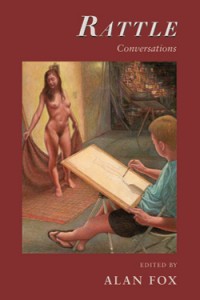 RATTLE
RATTLE
Conversations
Edited by Alan Fox
Published by Red Hen Press, 2008
“Fourteen selected RATTLE Conversations offer rare insight into the lives and thoughts of some of the most notable American poets of our time. Informative and intimate, the conversations look beyond the academic minutia and into the heart of what we love – the passion that compels poetry, and the process that completes it. These poets explore not what they wrote, but why they had to write it, and how it came to be. As such, the RATTLE Conversations serve as an indispensable guide and companion to anyone who appreciates the art and experience of writing.”
Includes conversations with Daniel Berrigan, Hayden Carruth, Lucille Clifton, Sam Hamill, Jane Hirshfield, Yusef Komunyakaa, Jack Kornfield, Li-Young Lee, Philip Levine, Sharon Olds, Gregory Orr, Luis J. Rodriguez, Alan Shapiro, and Diane Wakoski.
An excerpt from the interview with Gregory Orr:
Fox: You talk about the impulse to write and the importance of that. What happens to you after the poem is out there in the world? Is the response meaningful?
Orr: It certainly is now. I love reading my poems to audiences now. I love the idea of communicating with people in the sense that what I really enjoy is that if I read my poems to people, we somehow start talking after the reading. Those things where they say, will you take any questions after the reading? They’re terrified to even ask you that. And I’m thinking, the hell with the reading, let’s just have the questions, let’s just have a conversation. So, I’ve gone from this person who was in terror of other people and, again, I’m describing the first several books and stuff. I had no pride, no pleasure in sharing, in confiding. I was still so far inside myself, working out my own self-absorbed, anguished story.
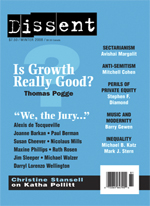 Scholastic Disobedience
Scholastic Disobedience
By Martha Nussbaum, Mohammed Abed, and Murray Hausknecht
From Dissent Magazine
“Last spring, Britain’s 120,000-strong University and College Union voted to endorse a motion to boycott Israeli universities, calling on British academics to condemn the ‘complicity of Israeli academia in the occupation.’ Martha Nussbaum, Mohammed Abed, and Murray Hausknecht debate the legitimacy–and political utility–of academic boycotts.”
Read the debate here.
Gettysburg Review
2nd Annual Conference for Writers
Gettysburg College
Gettysburg, PA
June 4-9, 2008
“Please join us in creating a community of writers in bucolic, convivial, and historic setting. Small workshops (maximum of ten people each) will be led by award-winning writers who have dedicated their lives to the teaching of poetry and prose. Four three-hour, single-genre workshops will focus on the critique and revision of participant writing. Panel presentations by conference faculty and Review staff will provide opportunities for conference participants to talk with working writers and editors about craft, genre, and publishing topics. Author readings and book signings will be offered in the evenings, with one evening reserved for an open-mic conference participant reading.”
Distinguished Faculty: Lee K. Abbott (fiction), Joan Connor (fiction), Terrance Hayes (poetry), Suzannah Lessard (nonfiction), Rebecca McClanahan (nonfiction), Peggy Shumaker (poetry)
Application Deadlines: Applications must be received by May 12, 2008. Scholarship applications must be postmarked by March 17, 2008.
Essay Press is a new imprint dedicated to publishing innovative, explorative, and culturally relevant essays in book form. Initial title releases include: Griffin by Albert Goldbarth; I, Afterlife: An Essay in Mourning Time by Kristin Prevallet; The Body: An Essay by Jenny Boully. Forthcoming titles include Letters from Abu Ghraib by Joshua Casteel and Adorno’s Noise by Carla Harryman
“We are currently accepting submissions of essays ranging from roughly 40 to 80 pages. We will be reading from June to September. We are interested in publishing single essays that are too long to be easily published in journals or magazines, but too short to be considered book-length by most publishers. We are looking for essays that have something to say – essays that both demand and deserve to stand alone. We particularly welcome work that extends or challenges the formal protocols of the nonfiction essay–including, but not limited to, lyric essays or prose poems, experimental biography and autobiography, innovative approaches to journalism, and experimental historiography.”
2007 was a banner year for progressive books, but two stand out as true groundbreakers: Naomi Klein’s The Shock Doctrine and Jeremy Scahill’s Blackwater, published by Nation Books. They are co-winners in AlterNet’s 10 Best Books of 2007 contest.
Visit AlterNet list of Best Progressives Books of 2007, which include short summaries of the top 10 books and a list of “honorable mention” titles, with links to all.
By Don Hazen, AlterNet
Posted January 31, 2008

In 2008, to mark British Columbia’s sesquicentennial, The Malahat Review will devote its Winter issue to the Green Imagination. Focusing on creative approaches rather than on polemics and manifestos, this special issue aspires to place British Columbia—and the idea of British Columbia—at the ecological centre of the debate to showcase a variety of literary responses to questions such as:
“What is wilderness?”
“What is nature?”
“Is the natural world our adversary to be conquered and tamed, as Georgius Agricola argued in his 1556 “Defense of Mining the Earth’”
“Are we stewards of it, as P.K. Page suggests in her 1994 poem ‘Planet Earth’?”
“Are we an integral part of the natural world,” as Don McKay and Chief Dan George contend?
“What is the relationship between language and nature?”
“What is nature writing?”
Writers — B.C. residents and non-residents alike (i.e. true residents of the B.C. of the mind) — may widely interpret the theme of “B.C. and the Green Imagination.”
No restrictions as to form or approach apply: submissions of poetry, fiction, personal essay, memoir, cultural criticism, nature writing, literary journalism, and book reviews of relevant texts are welcome.
An honorarium of $40 per page will be paid for all accepted work.
Deadline: June 1, 2008 (postmark date)
Voices of Illness, Suffering, and Healing Magazine
Premiering Spring 2008
Call for Submissions for Second Issue
Providing a voice to those who might otherwise not be heard, especially those who are vulnerable and scared in illness. Honoring the caregivers who work tirelessly in service to those who are sick. Join with us in recognizing and celebrating these voices as they declare a part of our shared human experience. Seeking: Poetry, First-Person Narratives, Visual Art, Essays, Humor. Send submissions electronically and inquire about guidelines to managing editor, Belinda Jamison, at [email protected] or at 816-932-5767. Deadline is June 15, 2008.
Two Minutes of Light by Nancy K. Pearson has been selected for the 2008 Perugia Press Prize for a first or second book of poetry by a woman. Two Minutes of Light is due to be released in September 2008.
Finalists: Shannon Amidon for Coming Out of the Roar , and Stacey Waite for Butch Geography
Semi-Finalists: M. L. Brown, It’s Love That Pushes the Stockings Down;
Kristen Case, The Ice Fishermen; Tiffany M. De Vos, The Dimestore World; Karen Zaborowski Duffy, Nuclear Pregnancy; Kate Lynn Hibbard, Sweet Weight; Emily Johnston, Walks with Her Hands; Anna Leahy, In the Circle of the Familiar; Diane Kirsten Martin, Conjugated Visits; Leslie McGrath, Opulent Hungers, Opulent Rage; Regina O’Melveny, The Shape of Emptiness; Joan I. Siegel, Talking to the Blind & Deaf Dog at Night; Stephanie Walker, Dishwater Oracle; Holly Welker, Christian Art
shaking like a mountain is currently reading for its Spring 2008 issue. “We cannot emphasize this enough. Read us first. Then read our submission guidelines carefully. If you have poetry, fiction or creative nonfiction that you think fits our criteria, then submit and submit and submit.”
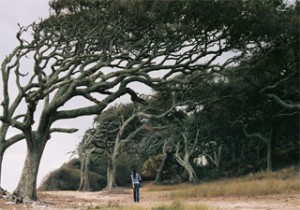 Housed within the English Department of Washington University in St. Louis, Arch Journal promotes collaboration within Washington University’s Arts and Sciences community for the purpose of producing an annual journal. Arch publishes interviews, translations, poetry, fiction, essays, and other materials.
Housed within the English Department of Washington University in St. Louis, Arch Journal promotes collaboration within Washington University’s Arts and Sciences community for the purpose of producing an annual journal. Arch publishes interviews, translations, poetry, fiction, essays, and other materials.
Issue #1 Winter 2008 includes:
Poetry by Jennifer Atkinson, Walter Bargen, Thomas Cook, John Gallaher, Robert Lietz
Fiction by Andrew Coburn
Translation: V
The Swarthmore Review is a new poetry journal being founded by students at Swartmore College. The review has no special requirements as to form or genre; however, all work must be previously unpublished. The first issue will appear in June 2008, and it will continue to publish annually. Please email submissions to swarthmorereview (at) sccs.swarthmore.edu as a PDF document. Deadline: April 1, 2008.
“A cappella Zoo is an independent literary magazine open to all works that are worthy of a good, thorough read, while particularly emphasizing fiction that experiments with technique, form, language, and thought. We make a hobby of shaking up traditional ideas and assumptions about truth and language, whether to challenge our intellects or just to play, but always to contribute to an on-going universal discussion on humanity.”
Some favorite authors of the publishers includ: Gabriel García Márquez, Tim O’Brien, Flannery O’Connor, Annie Proulx, George Saunders, Sylvia Plath, Octavia Bulter, Jorge Luis Borges, Margaret Atwood, Ernest Hemingway, Angela Carter, Orson Scott Card.
Submissions Open in May
A cappella Zoo invites submissions of short stories, flash fiction, poetry, creative non-fiction, plays, photography, and art. See site for requirements and pay.
Bilingual Submissions Sought
A cappella Zoo also seeks bilingual submissions, or two versions of the same work in two different languages, one in English and the other in Spanish or French (for other languages, send an email query first). Both versions need to be the original work of the author.
Contest
To celebrate the beginning of a new magazine, A cappella Zoo is hosting a short story contest with a theme of “origins.”
 Civil Rights Leader Johnnie Carr Dies at 97
Civil Rights Leader Johnnie Carr Dies at 97
by Debbie Elliott
From NPR.org
Johnnie Rebecca Carr, one of the lesser-known leaders of the civil rights movement, died Friday in Montgomery, Ala.
For decades, Carr led the Montgomery Improvement Association, an organization formed in 1955 when Carr’s childhood friend Rosa Parks was arrested for refusing to give up her bus seat to a white man. The moment sparked the Montgomery bus boycott, and drew national attention to the fight against segregation and a local minister named Martin Luther King Jr.
King was the first president of the Montgomery Improvement Association. Carr first helped organize carpools during the boycott. She became the group’s president in the ’60s and continued to fight for equal rights for African Americans, including enrolling her son in the all-white Montgomery public schools in a legal test case.
Carr died in a Montgomery hospital after suffering a stroke earlier this month. She was 97 years old.
Read more about Johnnie Carr and listen to the All Things Considered audio after 7:00pm Sunday on NPR.
For information about these and many other quality literary magazines, click the links or visit The NewPages Guide to Literary Journals. Also visit the NewPages Literary Magazine Reviews for new reviews as well as an archive of past reviews.
Columbia Poetry Review
Number 20
Spring 2007
Annual
Forge
“little people opening things”
Volume 1 Issue 2
Winter 2007
Biannual
Greensboro Review
Number 83
Spring 2008
Biannual
Harpur Palate
Volume 7 Issue 2
Winter 2008
Biannual
International Poetry Review
Volume 33 Number 2
Fall 2007
Biannual
Manoa
A Pacific Journal of International Writing
“Maps of Reconciliation: Literature and the Ethical Imagination”
Edited by Frank Stewart and Barry Lopez
Volume 19 Number 2
Winter 2007
Biannual
The Missouri Review
“Fractured”
Volume 30 Number 4
Winter 2007
Quarterly
New South
(Formerly GSU Review)
Fall/Winter 2007
Biannual
Notre Dame Review
Number 25
Winter/Spring 2008
Biannual
One Story
“Beanball” by Ron Carlson
Issue Number 99 & 100
2007
Monthly
Pleiades
Volume 28 Number 1
2008
Biannual
Quick Fiction
Issue 12
Fall 2007
Biannual
Rock and Sling
A Journal of Literature, Art, and Faith
Volume 4 Issue 2
Winter 2008
Biannual
Salmagundi
Number 157
Winter 2008
Quarterly
Spinning Jenny
Number 10
2007
Sport Literate
Volume 5 Issue 1
2007
Biannual
Western Humanities Review
Volume 62 Number 1
Winter 2008
Biannual
Witness
“The Modern Writer as Witness”
Volume 21
2007
Annual
Zahir
A Journal of Speculative Fiction
Issue 15
Spring 2008
Triannual
For information about these and many other quality alternative magazines, click the links or visit The NewPages Guide to Alternative Magazines.
Buddhadharma
The Practioner’s Quarterly
“Does Buddhism make you happier?”
Volume 6 Number 3
Spring 2008
Quarterly
Conscience
The Newsjournal of Catholic Opinion
“Church and State at the Crossroads”
Volume 28 Number 4
Winter 2007-2008
Quarterly
Free Inquiry
Celebrating Reason and Humanity
“Science and the Islamic World”
Volume 28 Number 2
February/March 2008
Bimonthly
fRoots
The Essential Worldwide Roots Music Guide
Number 297
March 2008
Monthly
In These Times
“Killer Credit! Attack of the $915 Billion Consumer Debt MONSTER!”
Volume 32 Number 2
February 2008
Monthly
Korean Quarterly
“Mu Performing Arts”
Volume 11 Number 2
Winter 2007-2008
Quarterly
Kyoto Journal
Perspectives from Asia
Number 68
2007
Quarterly
Labor Notes
Number 347
February 2008
Monthly
Lilipoh
The Spirit in Life
Issue 50 Volume 12
Winter 2007
Quarterly
Mother Jones
Smart, Fearless Journalism
“Torture Hits Home”
Volume 33 Number 2
March/April 2008
Bimonthly
Our Times
Canada’s Independent Labour Magazine
December 2007-January 2008
Bimonthly
Sierra
Explore, Enjoy, and Protect the Planet
“Wild Rides”
Volume 93 Number 2
March/April 2008
Bimonthly
Space and Culture
Volume 11 Number 1
February 2008
Quarterly
International Journal of Social Spaces
Verbatim
The Language Quarterly
Volume 31 Number 3
Autumn 2006
Volume 31 Number 4
Winter 2006
Quarterly
Whispering Winds
American Indians: Past & Present
Volume 37 Number 2 Issue 259
January/February 2008
Bimonthly
White Crane
Gay Wisdom and Culture
“The Bearable Rightness of Being”
Number 75
Winter 2007/2008
Quarterly
Z Magazine
February 2008
Monthly
Passager
Pass It On: Firsts
Submit work: January 1 – September 15 (postmarked date)
Results announced (projected date): November, 2008
This section of the journal is devoted to personal stories on the current topic: FIRSTS. Send 250 words or less of informal prose about some “first” in your life. No poems or fiction.
Passager
Open Issue For Writers over 50
Submit work: June 1 – September 15 (postmarked date)
Poetry, Short Fiction, Memoir
Sim/sub ok
Results announced (projected date): November, 2008
No reading fee for Open Issue submissions
New Madrid
Winter 2009
Theme Issue
Submission dates August 15 — November 1, 2008
“In keeping with its location in the Bible Belt, New Madrid will dedicate its Winter 2009 issue to the theme of “Intelligent Design.” We’reinterested in receiving submissions that address the legacy of Darwin, the impact of the evolution-vs.-creationism debate on the public schools, the cosmological argument, etc., provided they are literary in form and intent. The staff is also interested in receiving submissions of works that let their structures show for example, poems in received forms or nonce forms, and fiction and non-fiction utilizing unorthodox narrative devices (for example, frames within frames)—as well as in works that consider design issues from the perspective of other disciplines (for example, architecture, quilting, graphic arts, the natural sciences, etc.). Our hope is to reinvigorate the phrase “intelligent design” by approaching it from a multiplicity of angles.”
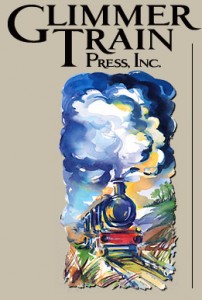 Glimmer Train Stories announces their December Fiction Open winners:
Glimmer Train Stories announces their December Fiction Open winners:
First place: Stephanie Dickinson of New York, NY, wins $2000 for “A Hole in the Soup”. Her story will be published next year in Glimmer Train Stories.
Second place: Elizabeth Koch, also of New York, NY, wins $1000 for “Would You and Other Relevant Questions”. Her story will be published in an upcoming issue of Glimmer Train Stories.
Third place: Clark Knowles of Portsmouth, NH, wins $600 for “Boxville, East Boxville”. His story will also be published in an upcoming issue of Glimmer Train Stories, increasing his prize to $700.
The next Fiction Open deadline is March 31.
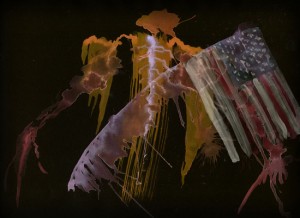 The November Third Club, an online literary journal seeking to “up the ante” of literary political writing, wants poetry and prose that resonates with a political message and rises above mere rhetoric and rant. Their emphasis is political literature, unabashedly left-wing. Their poetry submissions pile is presently anemic [shocking!]; check the latest issue, which includes poets like Rita Dove, Sam Hamill, Marty McConnell, Sherman Pearl, Arthur Sze and Shole Wolpe, then send YOUR best work. Deadline March 15, earlier is even better.
The November Third Club, an online literary journal seeking to “up the ante” of literary political writing, wants poetry and prose that resonates with a political message and rises above mere rhetoric and rant. Their emphasis is political literature, unabashedly left-wing. Their poetry submissions pile is presently anemic [shocking!]; check the latest issue, which includes poets like Rita Dove, Sam Hamill, Marty McConnell, Sherman Pearl, Arthur Sze and Shole Wolpe, then send YOUR best work. Deadline March 15, earlier is even better.
Protest Poems: Poets Writing for the Freedom of Speech is an unedited compilation of voices of protest and solidarity currently seeking submissions for its second compilation, protesting the arrest of satirical comedian H
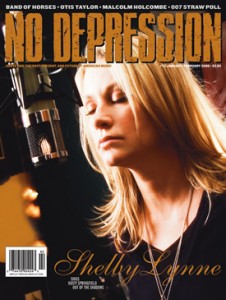 “The latest edition of the alt-country magazine No Depression contains an announcement that it will cease publishing after its next issue, although the Web site will continue to have some new content. While the 13-year-old magazine’s simple answer for its shutdown lies infalling ad revenue – “advertising revenue in this issue is 64% of what it was for our March-April issue just two years ago. We expect that number to continue to decline.” – its longer answer, perhaps unsurprisingly, involves the music industry’s woes, the ever-changingrole of record labels, and the declining number of outlets where the magazine can be sold.”
“The latest edition of the alt-country magazine No Depression contains an announcement that it will cease publishing after its next issue, although the Web site will continue to have some new content. While the 13-year-old magazine’s simple answer for its shutdown lies infalling ad revenue – “advertising revenue in this issue is 64% of what it was for our March-April issue just two years ago. We expect that number to continue to decline.” – its longer answer, perhaps unsurprisingly, involves the music industry’s woes, the ever-changingrole of record labels, and the declining number of outlets where the magazine can be sold.”
Ginosko is accepting short fiction & poetry, creative non-fiction and excerpts for the 6th issue. Length flexible. Editorial lead time 1-2 months; accept simultaneous submissions and reprints; receives email & postal submissions. Copyright reverts to author. Publishing as semiannual ezine–summer & winter. Selecting material for printed anthology. Check downloadable issues on website for style & tone. Ezine circulation 2900+. Website traffic 150-350 hits/month. Also looking for artwork, photography, to post on website and links to exchange.
by Walter Mosley
Available April 2008
Tempest Landry and everyman African American, is “accidentally” killed by a cop. Denied access to heaven because of what he considers a few minor transgressions, Tempest refuses to go to hell. Stymied, Saint Peter sends him back to Harlem. There a guiding angel tries to convince Tempest to accept Saint Peter’s judgment and even the Devil himself tries to win over Tempest’s soul. Through street-smart Landry, Mosley poses the provocative question: Is sin for Blacks the same as it is for Whites? And who gets to decide?
University of Illinois at Chicago journal Packingtown Review invites submissions for its inaugural issue to be released in November 2008. Seeking submissions of poetry, scholarly articles, drama, creative nonfiction, fiction, and literary translation, as well as genre-bending pieces. For more information, please view their submission guidelines.